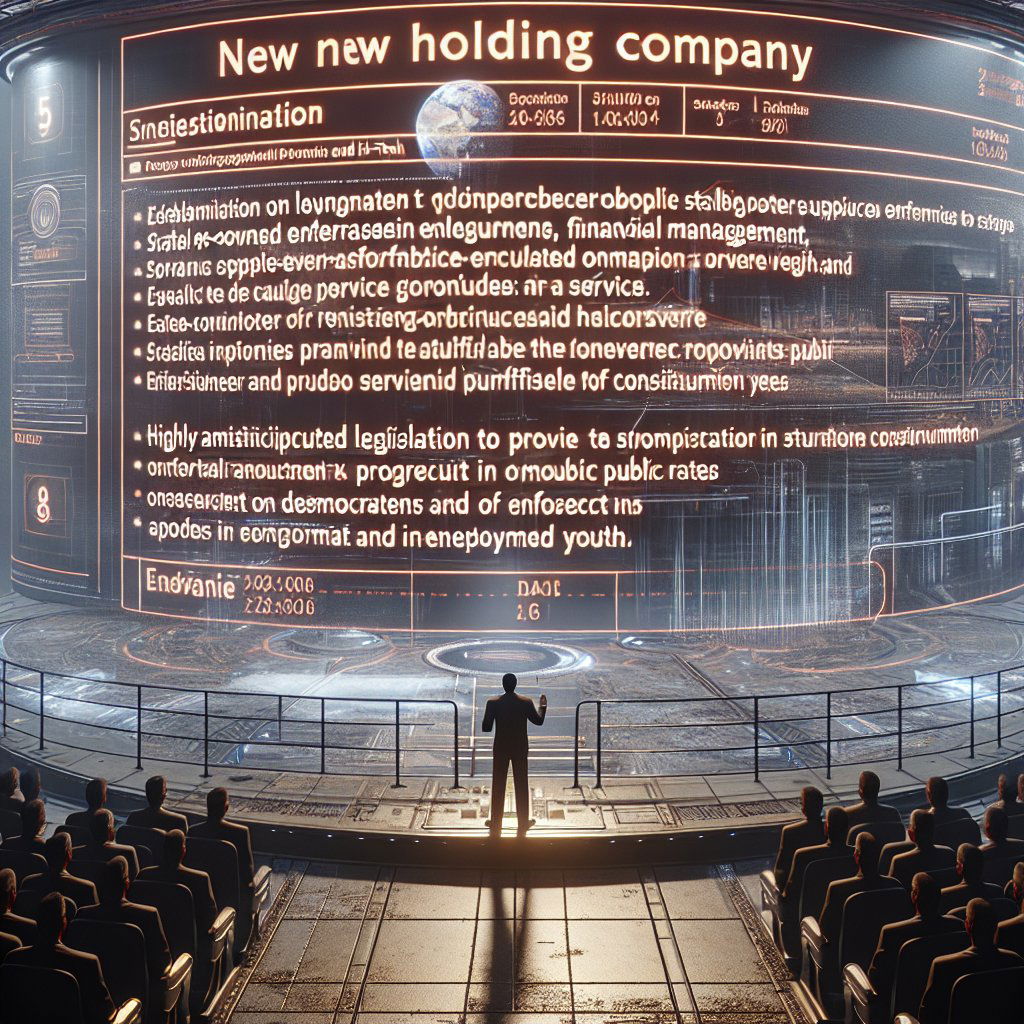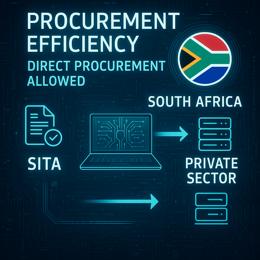Image created by AI
President Ramaphosa Advocates for a State-owned Holding Company and Accelerated Reforms for SOEs
In a noteworthy development, President Cyril Ramaphosa has highlighted the South African government's commitment to reform state-owned enterprises (SOEs) by establishing a holding company responsible for overseeing these entities. This strategic move, as disclosed during a parliamentary session, is designed to enhance service efficiency and foster socio-economic development.
President Ramaphosa elucidated that the Department of Planning, Monitoring and Evaluation has the mandate to finalize the procedures involved in creating this holding company. The affected SOEs, once governed by the Department of Public Enterprises, will now interact with their respective line departments for policy and regulatory advice. This alignment, the President emphasized, is not only reflective of global practices but is also critical to the success of SOEs in fulfilling societal and developmental roles.
Legislation is in the pipeline to confer the holding company with comprehensive oversight on governance, remuneration and financial management. This initiative is expected to result in improved public services like consistent electricity supply, clean water, efficient rail services, and reduced data costs, all which significantly impact the lives of everyday South Africans.
Moreover, President Ramaphosa drew attention to the discernible gains from Operation Vulindlela, a set of structural reforms targeting key economic sectors including energy, logistics, telecommunications, visa policy, and water management. The progress in the water sector, particularly with reforms like the Water Partnerships Office, is intended to ensure the delivery of cleaner, more sustainable water services across the nation.
The President was also responsive to issues concerning the nation's youth, outlining existing initiatives such as the National Rural Youth Service Corps (NARYSEC), which affords opportunities to the unemployed rural youth. There is, however, recognition of the need to extend the reach of such initiatives to maximize their impact.
Acknowledging the challenges that South Africa currently faces, President Ramaphosa underscored the necessity for a strong central coordination mechanism, implying the current structure of the Executive is essential for governance that serves the entire nation's interests. Strategies to optimize state resource usage while pursuing inclusivity and balance were assured, alongside commitments to curtail waste and reform SOEs diligently.
In his call to action, President Ramaphosa stressed the imperative for collective effort to fortify public trust in democracy and to realize the aspirations of dignity and equality enshrined in the constitution. He expressed a vision where, looking back in five years, tangible improvements in the lives of citizens and a closer approximation to the ideal South African society would be evident.










